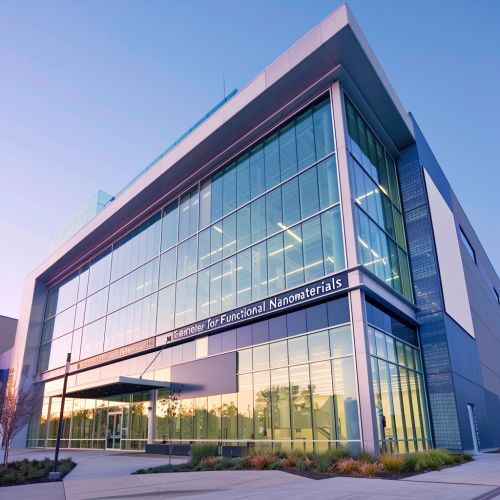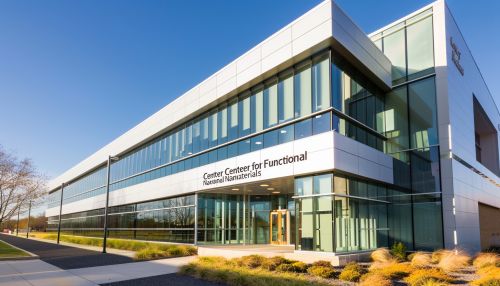Center for Functional Nanomaterials
Overview
The Center for Functional Nanomaterials (CFN) is a scientific user facility and research center dedicated to the advancement of nanoscale science. The center, funded by the U.S. Department of Energy's Office of Basic Energy Sciences, provides researchers with state-of-the-art tools and expertise needed to study and manipulate materials at the nanoscale.


History
The Center for Functional Nanomaterials was established in 2007 as part of the U.S. Department of Energy's (DOE) Nanoscale Science Research Centers (NSRCs) initiative. This initiative was a response to the growing importance and potential of nanoscience, and the need for dedicated facilities where cutting-edge research could be conducted.
Research Areas
The research at the CFN is organized into five main thematic areas:
Nanoscale Phenomena in Quantum Materials
This research area focuses on understanding and controlling quantum phenomena in nanomaterials. Researchers in this area use advanced imaging and characterization techniques to study materials with novel or complex quantum behaviors.
Nanomaterials by Design
In this area, researchers focus on the design and synthesis of nanomaterials with tailored properties. This involves a combination of theoretical modeling, experimental synthesis, and characterization techniques.
Interface Science and Catalysis
This research area is dedicated to understanding the fundamental processes that occur at interfaces in nanomaterials, and how these can be harnessed for catalysis. This knowledge is crucial for the development of more efficient and sustainable energy technologies.
Soft and Bio-Nanomaterials
This area focuses on the study and manipulation of soft and bio-nanomaterials, such as polymers and biological macromolecules. Researchers in this area aim to understand the unique properties of these materials and how they can be utilized in various applications.
Theory and Computation
This research area involves the use of theoretical and computational tools to predict and understand the properties of nanomaterials. This work is crucial for guiding experimental efforts and for the design of new materials.
Facilities and Instruments
The CFN houses a wide range of state-of-the-art instruments and facilities, which are made available to researchers from academia, industry, and other research institutions. These include:
Electron Microscopy
The CFN's electron microscopy facility includes a suite of high-resolution transmission electron microscopes (TEMs) and scanning electron microscopes (SEMs), which allow researchers to image and analyze materials at the atomic scale.
Nanofabrication
The nanofabrication facility at the CFN provides a range of tools for the fabrication of nanoscale devices and structures. This includes lithography systems, deposition tools, and etching equipment.
Surface Characterization
The surface characterization facility provides tools for the analysis of surfaces and interfaces. This includes techniques such as X-ray photoelectron spectroscopy (XPS), Auger electron spectroscopy (AES), and scanning tunneling microscopy (STM).
Soft Matter Characterization
This facility provides tools for the characterization of soft and bio-nanomaterials. This includes techniques such as small-angle X-ray scattering (SAXS), dynamic light scattering (DLS), and atomic force microscopy (AFM).
User Program
The CFN operates a user program that allows researchers from around the world to access its facilities and expertise. This program is open to researchers from academia, industry, and other research institutions, and is intended to facilitate and promote the advancement of nanoscale science.
